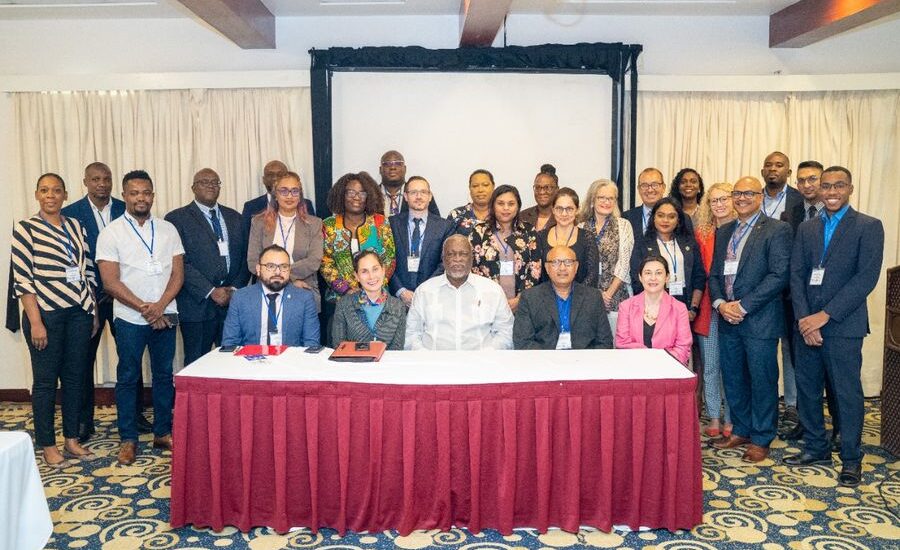- October 11, 2022
- Posted by: Patrice Wishart
- Category: Uncategorized

October 11, 2022
The Government of Guyana, through the Civil Defence Commission (CDC), hosted a two-day workshop with other Caribbean and International Disaster Risk Management (DRM) entities to improve the Multi-Hazard Early Warning Systems (MHEWS) through extensive consultations. The objective was to revise existing National Governance Mechanisms in the Caribbean aiming to identify good practices and likely recommendations to design, advance, implement, sustain, monitor and manage MHEWS.
The workshop, which occurred on October 6 & 7, 2022, addressed quintessential items including: National Strategic Plans and Frameworks; Words into Actions through Governance Mechanisms; Lessons Learned from previous Hazards and Disasters such as Hurricane Maria (Dominica) 2017 and the Guyana Floods 2021; Implementation of MHEWS Policies; and several open group discussions surrounding the Sendai Framework for Disaster Risk Reduction (DRR), Making Cities Resilient (MCR) 2030 and other relevant topics.
Organizations inclusive of the Caribbean Disaster Emergency Management Agency (CDEMA), the United Nations office for Disaster Risk Reduction (UNDRR), The World Bank, the World Meteorological Office (WMO), and regional DRM outfits from Trinidad and Tobago; Barbados; Dominica; Antigua and Barbuda; St. Lucia; and St. Vincent and the Grenadines all participated along with local representatives from the CDC and The Hydrometeorological Office. Prime Minister of Guyana, Brigadier (Ret’d) Mark Phillips, in his opening remarks commended the symbiotic relationships that have developed and will continue to develop through such engagements. He indicated that MHEWS is vital to preparing for, managing and reducing hazard risks and Guyana intends to utilize all available resources to ensure that significant impacts are avoided. United Nations (UN) Resident Coordinator, Yesim Oruc, echoed the Prime Minister’s narrative while indicating that the UN is dedicated to ensuring that all member countries use the Goals of the Sendai Framework as guidelines to aid their development of MHEWS.
The participants lauded the CDC and the Government of Guyana for hosting the delegates and facilitators and have pledged to continue working with local and regional institutions with the aim of upgrading DRM and DRR.

